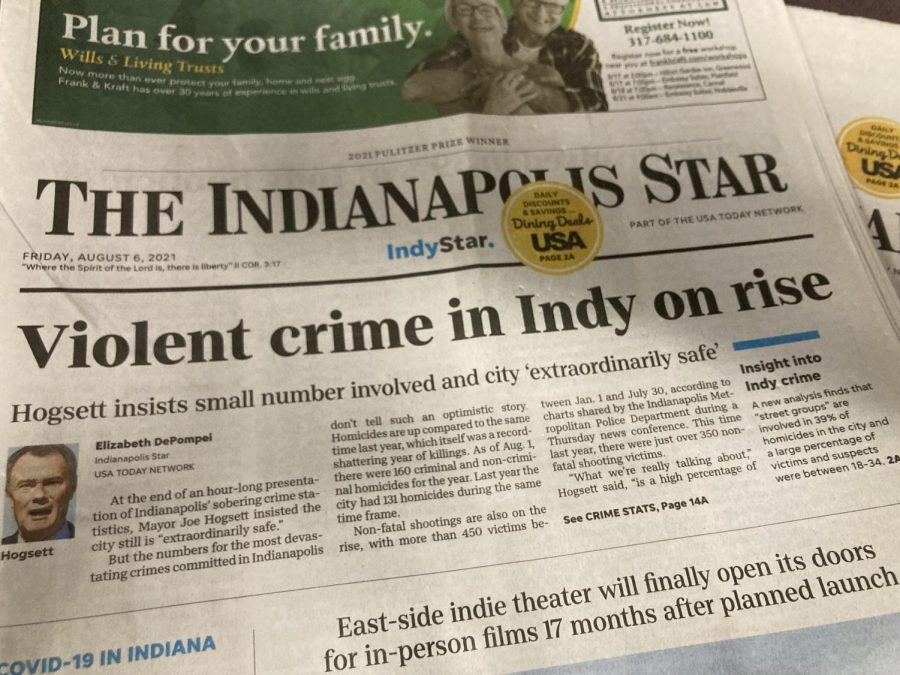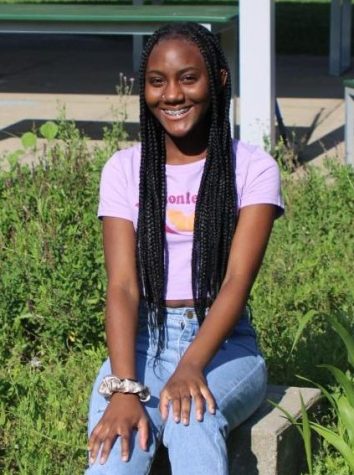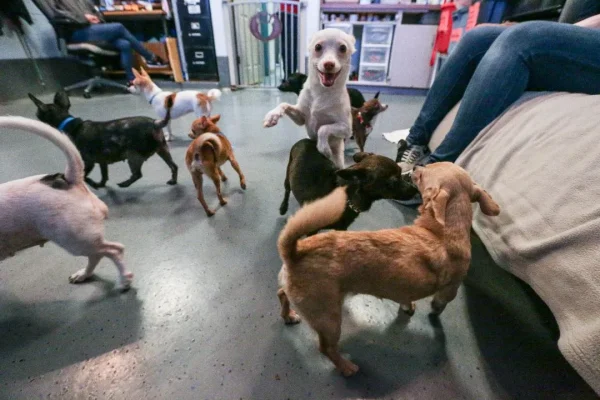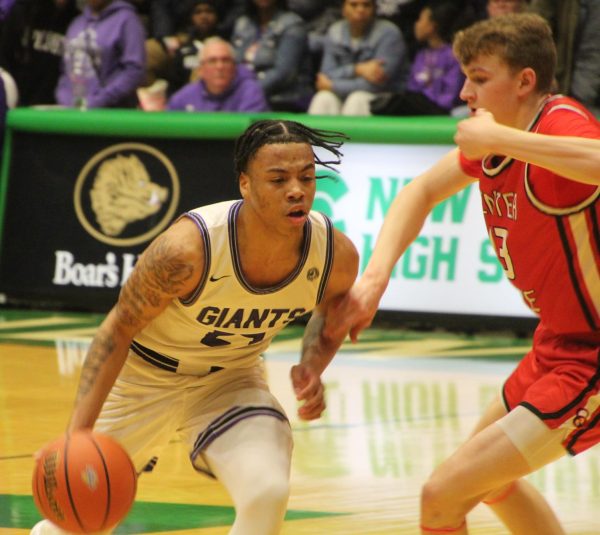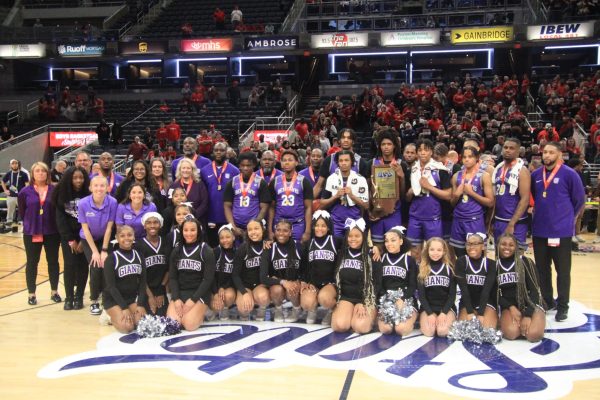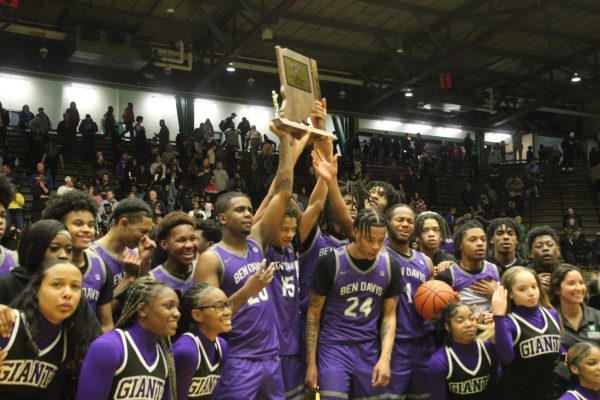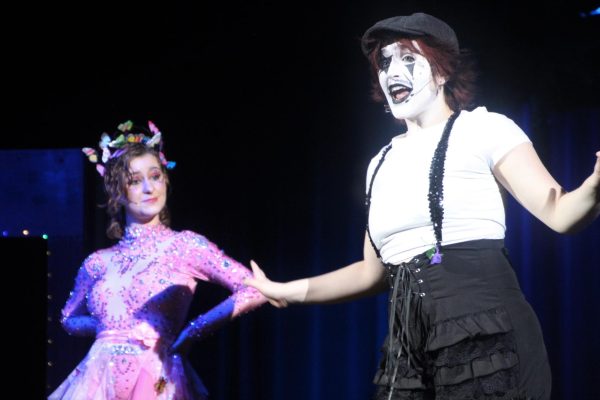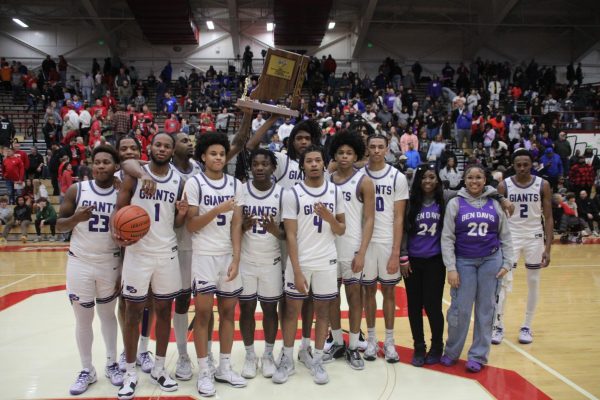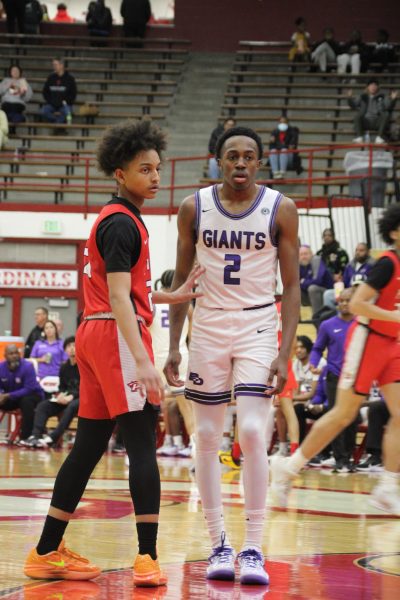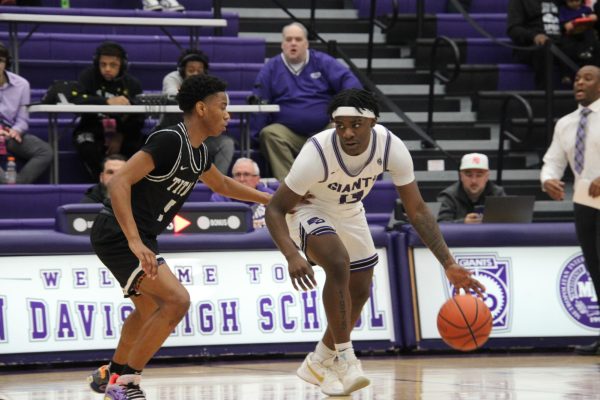Crime students discuss how to make city safer
August 30, 2021
Whether or not the crime in Indianapolis is alarming is a controversial topic.
The headlines in recent news have stated the facts — Indianapolis and Marion County is on track to set another yearly record for homicides and violent crimes.
Crime in general is something we, as a society, overlook because we’re programmed to think “there’s just bad people out there” and “we’ll just try our best to be safe.”
Yes, these are valid stigmas, but they’re also very general and fail to depict the big picture. So what is the big picture?
The big picture is that cities are getting worse and worse by the day. It’s not just the nature and the scenery of a city that makes it beautiful. It’s also the quality of life it can provide for a person, and the coming together of a community in a safe and neighborly fashion.
In a perfect world, this would be true for all cities at all times. We have crime. Also, crime doesn’t only involve murders. Robberies, assault, vandalism, and other harmful acts are also factors that can contribute to a city’s bad reputation.
The current mayor of Indianapolis, Joe Hogsett recently made the statement that Indianapolis is an “extraordinarily safe city.” With homicide rates reaching a record in the city we call home is nothing short of absurd. Indianapolis is publicly labeled a dangerous city, and we’re on the list with a number of other major cities previously known to be more risky areas.
Often we hear, “Our youth is our future.” So we spoke to three students who are a part of the criminal justice learning curriculum taught by Trent Theobald, a retired Speedway police officer.
Senior Jacob Lynch
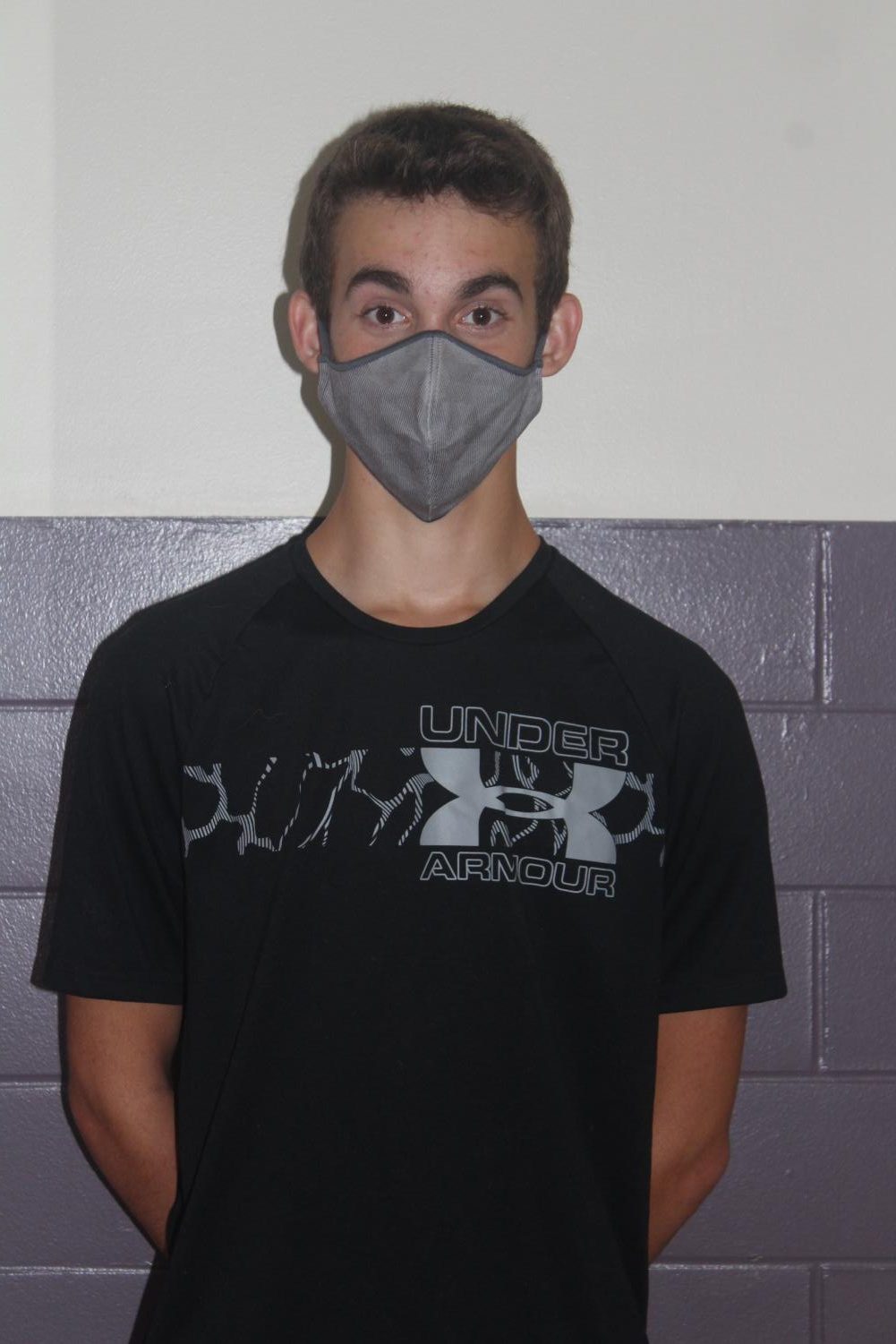 Why don’t you agree with the mayor’s statement that Indianapolis is a safe city?
Why don’t you agree with the mayor’s statement that Indianapolis is a safe city?
“I’ve learned recently from Mr. T that it’s not safe. It’s all because of the people. People kill people, not guns kill people.”
Jacob will continue to study law and justice for the remainder of the 2021-2022 and we appreciate his opinion on the matter.
Junior Mariah Richardson
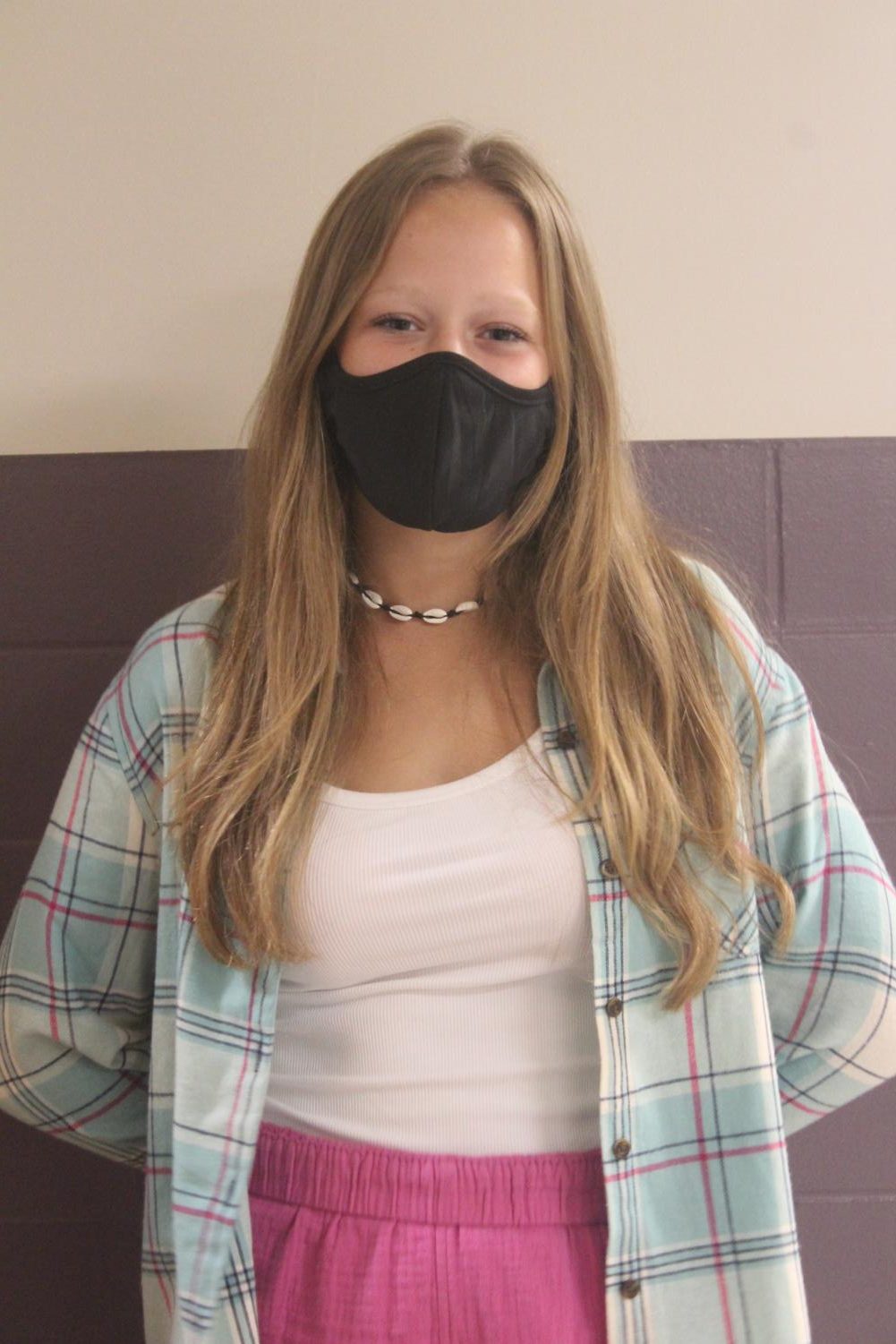 How aware of you are crime around the city?
How aware of you are crime around the city?
“I would say I’m a 6. In this class we’re learning a lot more about it so I’m more aware even with the short amount of time I’ve been in the class.
Much like Lynch, Richardson disagrees with the mayor’s statement and close-mindedness to doing something about our community.
“There’s a lot of effort to fix things, but they’re not effective right now. Crime rates will just continue to rise, there will continue to be a bunch of casualties, especially in Indianapolis,” she said.
Richardson brings up patterns, and how the system is clearly flawed, considering some convicted felons end up repeating the behaviors that got them in trouble. She stated, “It’s not just about having stricter laws and putting them in jail. It’s about helping them when they get out and rehabilitation.”
If Richardson had any say, she’d make sure that sentencing wasn’t the only priority. She would implement a system that allows for willing inmates to receive assistance and resources to encourage them to move forward and not return to their old ways.
When interviewed, she had very detailed and elaborate opinions about the lack of effectiveness of what we call “consequences.”
Senior Jordyn Jones
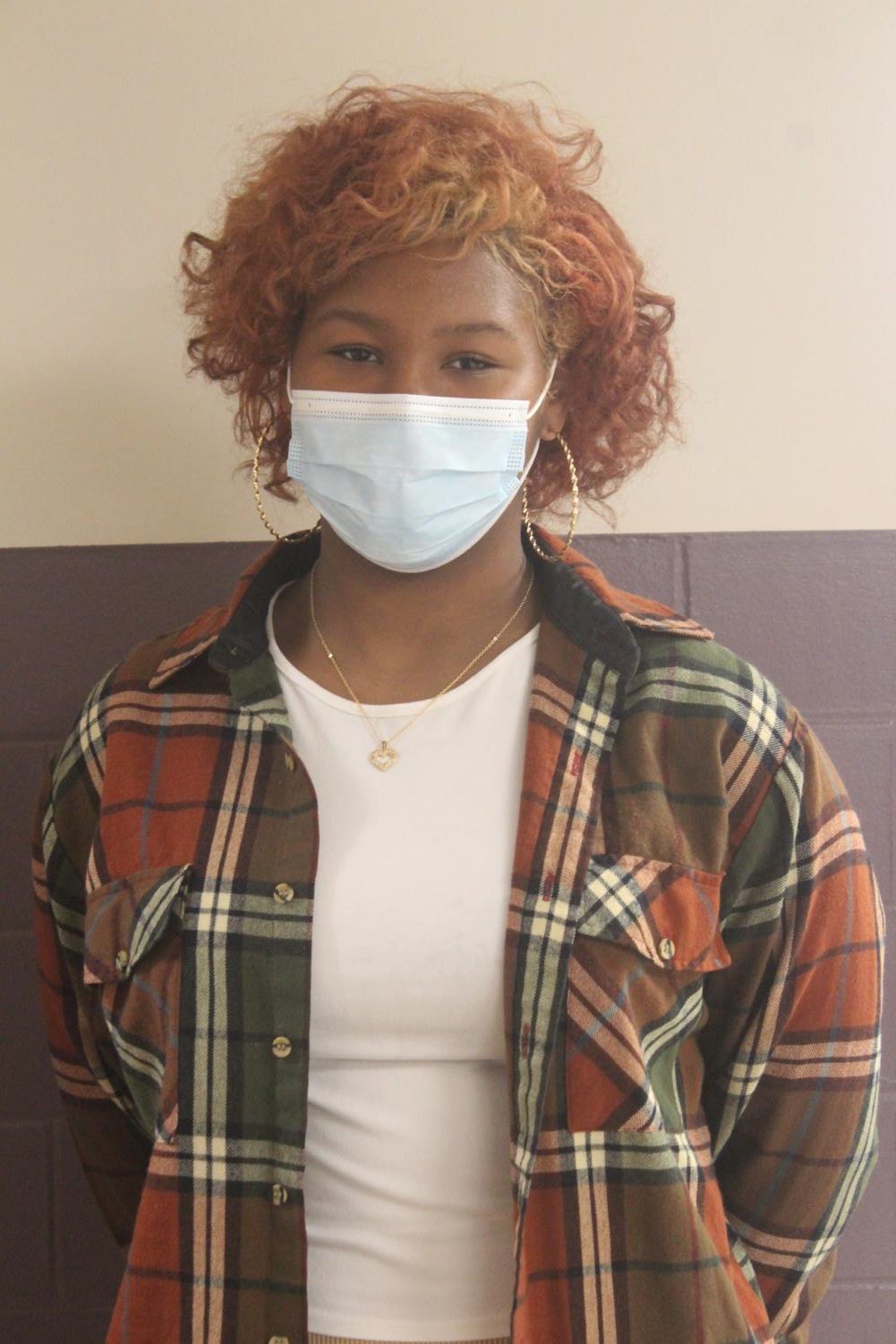 Jones was willing to voice her opinions on crime, poverty, and the social aspect of why crime takes place. Jones falls into two minority categories — she is a person of color, and she is a female, so we were eager to find out if her thought process differed greatly from her peers.
Jones was willing to voice her opinions on crime, poverty, and the social aspect of why crime takes place. Jones falls into two minority categories — she is a person of color, and she is a female, so we were eager to find out if her thought process differed greatly from her peers.
Jones placed herself at a seven when asked how aware she is of the homicides and other crimes in Indianapolis. She credited Mr. Theobald for her developing knowledge of the topic, and proceeded to elaborate on the issue.
“Crime is everywhere, but for Indianapolis, I wouldn’t say ‘safe’ is the word to use right now,” Jones said.
Jones also had an opinion on what consequences she thinks Indianapolis will suffer from 10-20 years from now if crime rates continue on a steady incline.
“We are definitely going to start to see some generational stuff because a lot of these crimes are being done by kids our age. It’s just going to move down, and we’ll be labeled as ‘dangerous’ which is not where we want to be,” she said.
Trent Theobald – Criminal Justice Instructor/ Retired Speedway Police Officer
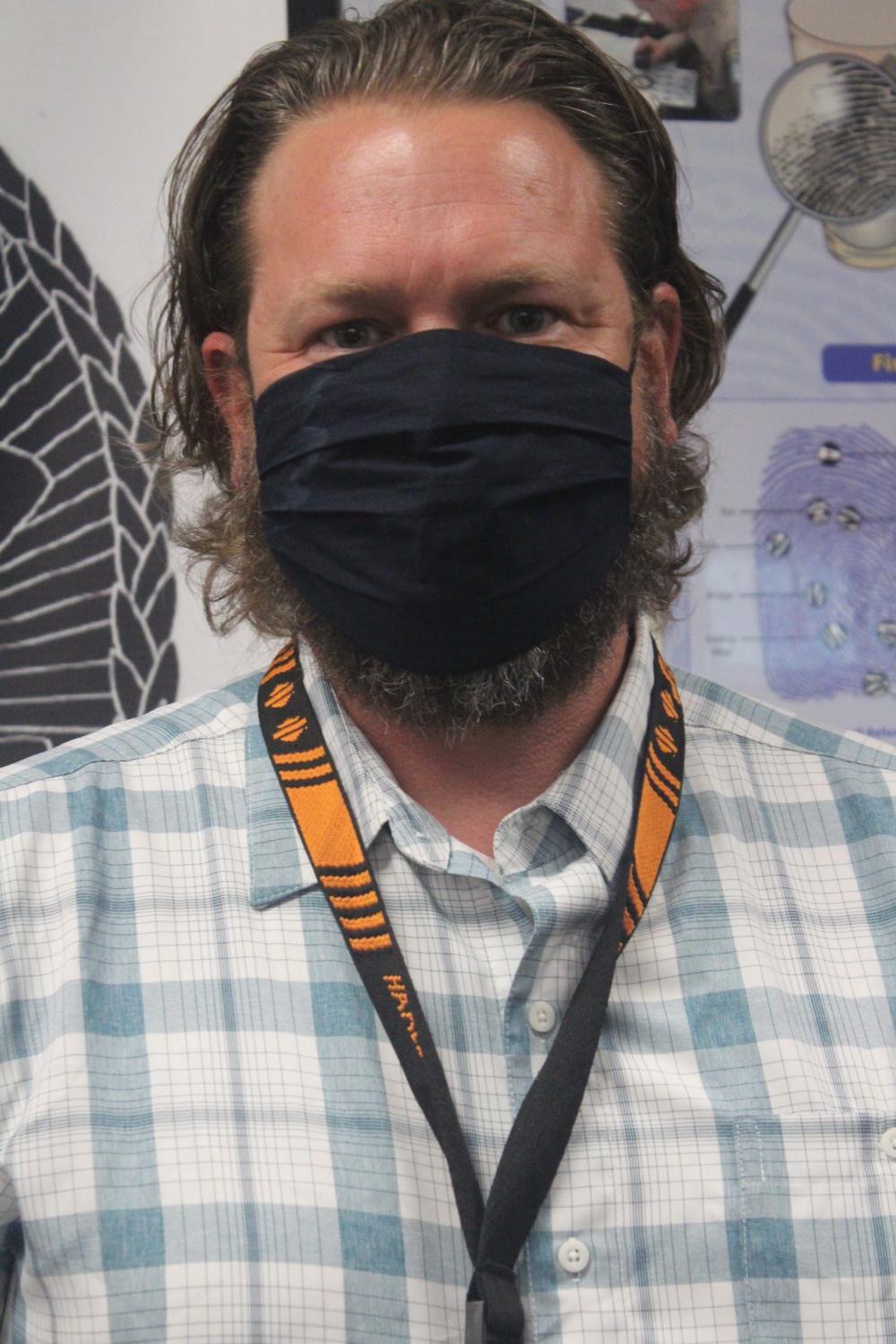 Theobald is a retired Speedway police officer who now spends his days teaching criminal justice to high school students. His reputation of being so open-minded and putting his students first truly upholds him.
Theobald is a retired Speedway police officer who now spends his days teaching criminal justice to high school students. His reputation of being so open-minded and putting his students first truly upholds him.
Theobald’s background of law enforcement has helped him with teaching his students.
“I like that from coming from being a police officer to being a teacher, it’s amazing how much I’ve learned just from talking to and getting to know my students,” he said. “I think a lot of times, the perceived notion of being a cop means that you’re all knowing. It’s amazing what I’ve been able to understand just from us coming from different backgrounds. We’re very culturally diverse. It’s helped me become more informed on a lot of different matters, and understanding them and where they come from is huge.”
Theobald finds Mayor Joe Hoggsets statement that we’re a safe city to be “politically motivated.” He says, “Unfortunately, it’s concerning and upsetting being a resident of Marion County that we see an increasing trend of shootings. I think it’s something that needs to be re-examined because I do want to live in a safe community, but to say we’re safe when we’ve had so many murders over the weekend.”
His wisdom and knowledge shows. Theobald was able to state the problem in a way that high school students with no background on crime, could understand and sympathize with. He made a lot of significant points.
“Socially, we as a community should all be contributing to make our communities safer. See something, say something,” he said.
He continued.
“A true understanding of our criminal justice system is needed,” he said. “One, we recognize that we have a broken criminal justice system, and because we have a broken system, what can we do to fix it? My generation of police officers have not done a very good job. We see that. It’s evident. It’s on the news. So we talk about the younger generation that will come in and make this better for all of us. My generation of police officers is the same generation that put the knee in the back of a man’s neck. That doesn’t look good.”


